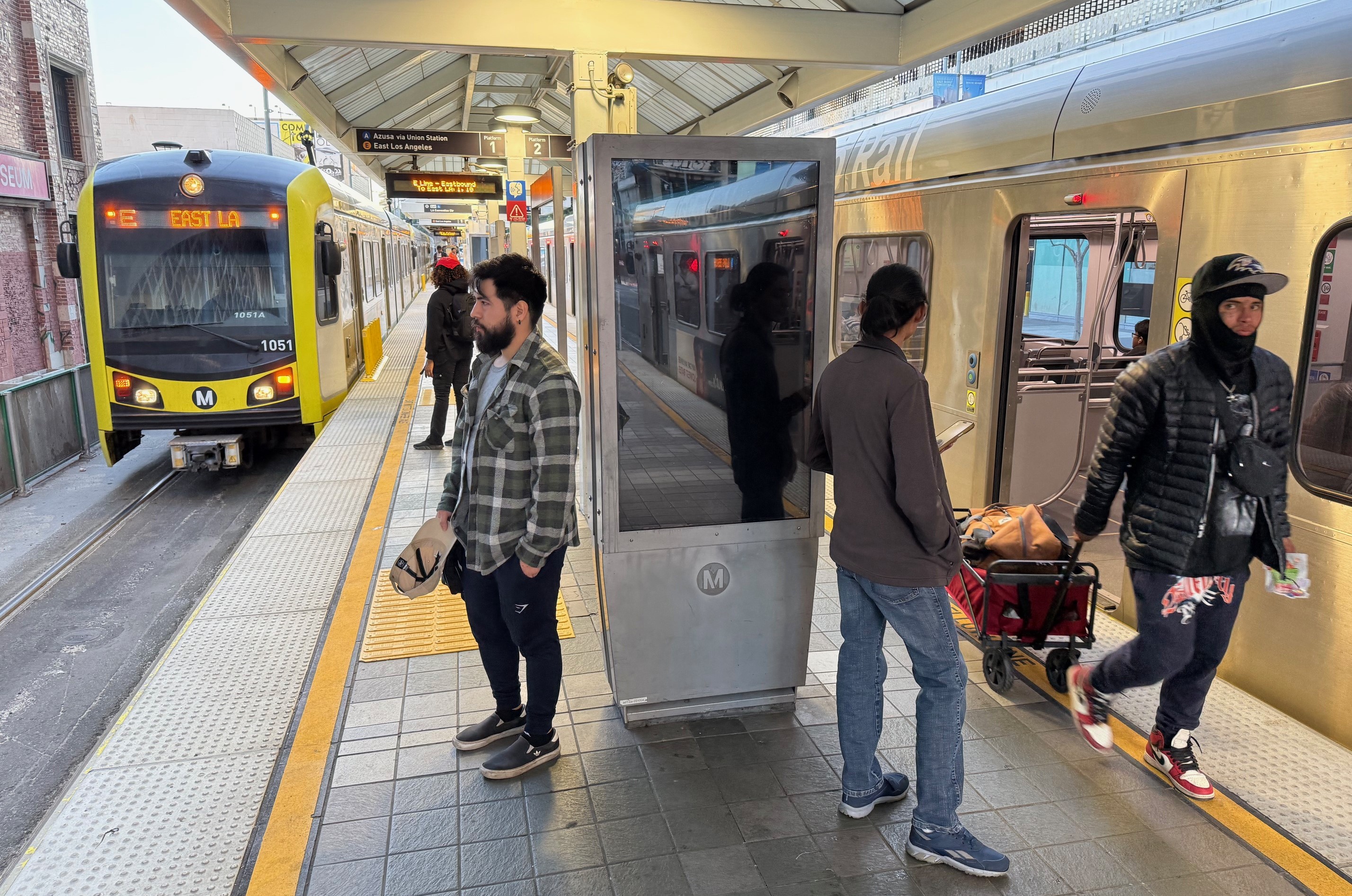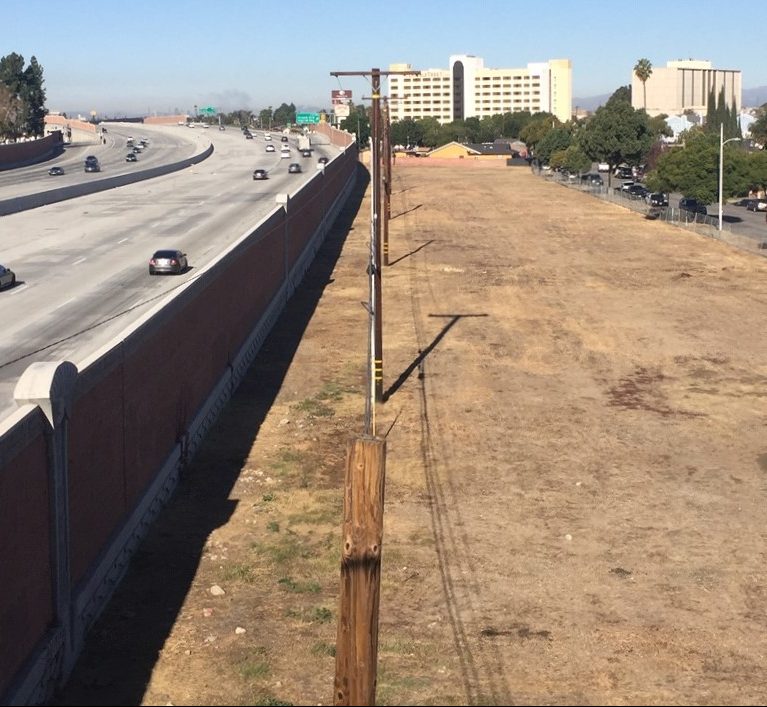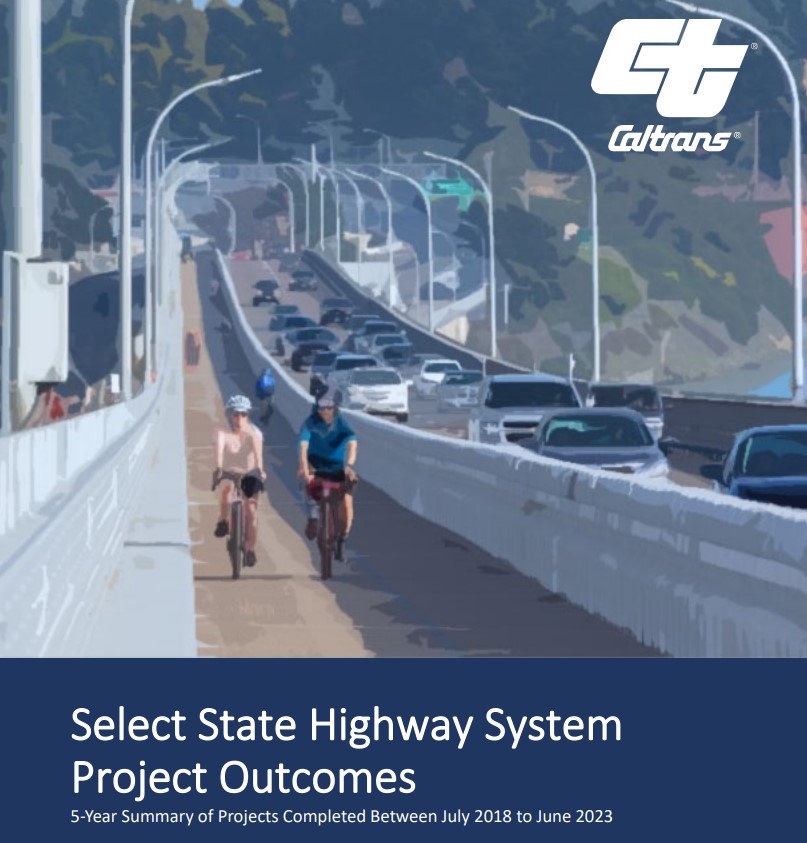 Image: Politico
Image: PoliticoIt's official. It's Jerry Brown v Meg Whitman for the Governorship of California. While we can expect a "vigorous campaign" between now and the election in November, neither candidate has staked out solid ground on transportation issues. For Brown, there's a track record going back decades, but for Whitman all we know about her positions is what was learned in a Republican primary where each candidate lurched as far to the right as possible as part of a flanking maneuver. That being said, here's what we know, and what we need to know about each candidate's positions on transportation spending, transit funding, high speed rail, raising the gas tax, the state's greenhouse gas law, offshore drilling and freight movement.
Transportation Spending Plans - Whether or not the state continues to build highways as though it has no negative impact on California's poor air quality or whether the state finally decides to "Fix-It-First" is possibly the most important issue in this election that nobody is talking about. Think about it, the next Governor could decide whether to move forward with Governor Schwarzenegger's idea to double-deck the I-405 or could order Caltrans to abandon highway projects until no bridges in the state are listed as "structurally deficient."
As you'll see with many of the issues we're looking at, during this early stage neither candidate has gone into detail on this issue. Whitman has made some statements that the state needs to invest in its roads and ports because both are crumbling. While that sounds as though she's embracing the concept of fixing what's broken, she wouldn't be the first politician to believe that "fixing crumbling infrastructure" means building more roads.
During Brown's tenure as Governor in the 1970's, highway expansion was somewhat de-emphasized in favor of building transit options. Whether that would continue to be his policy, whether it would morph to a "Fix-It-First" policy, or whether there's a totally new transportation plan remains to be seen.

Transit Funding - Neither candidate has gone into detail about whether or not they would restore the state's transit operations funds to its full level, right now the state is not meeting its obligations; but with a little tea-leaf reading we have some insight into what the candidates think. With Los Angeles pushing "30/10" the level of operations help from the state could be the most important transportation issue for the city that the new governor has to deal with. After all, someone's going to have to pay to keep those trains running.
Brown has a long record of supporting transit as governor and mayor. For example, when he visited Los Angeles for the first inauguration of Antonio Villaraigosa, he blogged that even though the mayor had serious plans to clean L.A.'s air, "With respect to transportation and the environment, much of the
solution lies at the state and national levels. Here is where the funds
are to support public transit, clean fuels and road improvements we
desperately need." That doesn't sound like someone who is planning to cut transit funding as governor. The Chronicle also points out that as Governor, Brown helped divert gas tax funds to pay for transit improvements.
Some have speculated that Whitman would cut what little Sacramento restored of its transit operating subsidy as part of her pledge to "cut spending." However, she's never addressed the issue head on. As a matter of fact, the only mention of the word "transit" on her website is a vague promise to devise a "transit plan for the future."
High Speed Rail - Robert Cruickshank, the author of the CAHSR Blog and long-time supporter of the project, writes about how a change in administration could derail the entire HSR plan, as history has shown us. So far, neither candidate has given a definitive position on the current California High Speed Rail proposal. However, history has shown Brown to be a supporter of the concept, going back to his first stint in the State House.
Cruickshank writes:
As Attorney General, his office has been supportive ofthe project, and backed the CHSRA’s controversial position on the Transbay Terminal project studies last September.
Brown is still espousing a vision of “elegant density”for California’s future, as he did 30 years ago, a vision that wasnever really implemented after the Reaganite turn politics took in the1980s, but a vision that holds urban density and mass transit at itscore. There is every reason to believe Brown will continue to supportHSR today.
Meanwhile, Whitman hasn't addressed the project directly. A search of her website reveals only a couple of mentions by supporters on various message boards. Some speculate that Whitman hasn't had a chance to form a full position on the project that balances her position that the state needs better transit with her position on fiscal restraint given the mammoth cost of the project. Others just think she will just play politics and use it as a wedge issue to try and peel away some liberal voters in San Mateo County.
The Gas Tax - Whitman is opposed to a state gas tax increase. To the best of my google, Brown hasn't stated a preference yet. The only candidate who staked a position on increasing the gas tax to pay for transportation was Tom Campbell, who was, at best, a footnote in the GOP Primary.
AB32 - Finally, an issue that's clear cut. Whitman wants to delay efforts to implement the state's landmark Climate Change legislation, which would begin in 2012 with the goal of reducing the state's emissions to 1990 levels by 2020. Brown supports AB32 and has fought legal efforts to repeal or delay the law.

Offshore Drilling - Despite the "Drill baby drill" mantra of some Republicans nationwide, Whitman opposes new drilling off California's coast until "new technologies can be completely proven to minimize the environmental impact of extracting oil and gas reserves." Admittedly, Whitman's position on offshore drilling has changed since the disaster in the Gulf.
Meanwhile, Brown has "always" opposed opening more of California's coast to oil drilling.
Freight Movement - Both candidates are on the record as supporting electrifying the ports and freight rail, but neither has rolled out an in-depth green ports plan. For Brown, we again have a lengthy record, including his role in helping to clean the air around the Port of Los Angeles. For Whitman, we have a statement on her website saying she supports clean ports, clean air, and electrified freight movement.
The position of the eventual governor on this issue could have huge repercussions locally. Truckers are still fighting the Port of Long Beach over its clean truck rules, and of course, expansion of the I-710 both in Long Beach and near South Pasadena, will be an issue that Caltrans will deal with in the next eight years.




